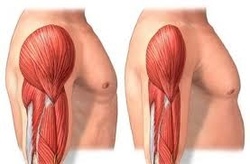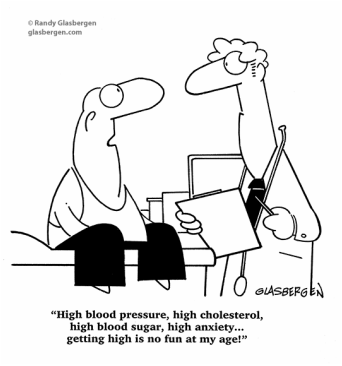
Sarcopenia and Ageing
Of all the latest research the results of this one really “seals the deal”. Resistance training builds muscle. And it does so at any age. But that is not the real find in this study. Numerous studies show you can gain lean muscle at any age. This study revealed something extraordinary: after 6 months of resistance training test subjects showed a “reversal of most of the genes affected by age” in muscle tissue. If you want to read the study yourself you can find it on PlosOne.org
Some of the biology aspects of the study are a bit technical but here are the highlights. Mitochondria are the energy factory of the human cell. As we age our muscles begin to show what researchers call “mitochondria dysfunction”. This is what causes all the bad stuff associated with “sarcopenia”.
This is the wasting away of muscle due to age and under-use. As we age most of us will experience a gradual loss of muscle. The problem? Muscle is active tissue. It is responsible for most of the calories we use during the day. The less muscle you have, the more body fat you will gain if you eat the same amount
Sarcopenia
From the time you are born to around the time you turn 30, your muscles grow larger and stronger. But at some point in your 30s, you begin to lose muscle mass and function, known as age-related sarcopenia. People who are not physically active can lose as much as 3% to 5% of their muscle mass per decade after age 30. Even if you are active, you will still experience some muscle loss.
Although there is no generally accepted test or specific level of muscle mass for sarcopenia diagnosis, any loss of muscle mass is of consequence, because muscle loss means loss of strength and mobility. Sarcopenia typically accelerates around age 75 -- although it may happen in people age 65 or 80 -- and is a factor in the occurrence of frailty and the likelihood of falls and fractures in older adults.
Of all the latest research the results of this one really “seals the deal”. Resistance training builds muscle. And it does so at any age. But that is not the real find in this study. Numerous studies show you can gain lean muscle at any age. This study revealed something extraordinary: after 6 months of resistance training test subjects showed a “reversal of most of the genes affected by age” in muscle tissue. If you want to read the study yourself you can find it on PlosOne.org
Some of the biology aspects of the study are a bit technical but here are the highlights. Mitochondria are the energy factory of the human cell. As we age our muscles begin to show what researchers call “mitochondria dysfunction”. This is what causes all the bad stuff associated with “sarcopenia”.
This is the wasting away of muscle due to age and under-use. As we age most of us will experience a gradual loss of muscle. The problem? Muscle is active tissue. It is responsible for most of the calories we use during the day. The less muscle you have, the more body fat you will gain if you eat the same amount
Sarcopenia
From the time you are born to around the time you turn 30, your muscles grow larger and stronger. But at some point in your 30s, you begin to lose muscle mass and function, known as age-related sarcopenia. People who are not physically active can lose as much as 3% to 5% of their muscle mass per decade after age 30. Even if you are active, you will still experience some muscle loss.
Although there is no generally accepted test or specific level of muscle mass for sarcopenia diagnosis, any loss of muscle mass is of consequence, because muscle loss means loss of strength and mobility. Sarcopenia typically accelerates around age 75 -- although it may happen in people age 65 or 80 -- and is a factor in the occurrence of frailty and the likelihood of falls and fractures in older adults.

Muscle Wastage
Muscle loss is also related to the onset of many bone diseases. The muscle that holds our spine in alignment can deteriorate as we age and cause major back problems. The same is true for the muscle and tendons around the knee and hip joints.
With age and no resistance training the researchers found 596 genes expressed themselves with “aging”, or decreased mitochondria function. When subjects engaged in resistance training, simple weight training, consider what happened:
* Their strength increased by over 200%
*Their genes reversed back to the same markers as younger genes after only 6 months
This is staggering! It is one thing to maintain muscle as we age. To gain muscle is even better. But to know that we are reverting our genes to a younger version within the muscle – and after only 6 months.
Strength is not a luxury as we age.
It is obviously necessary for longevity and health.
And this all takes place at the genetic level.
